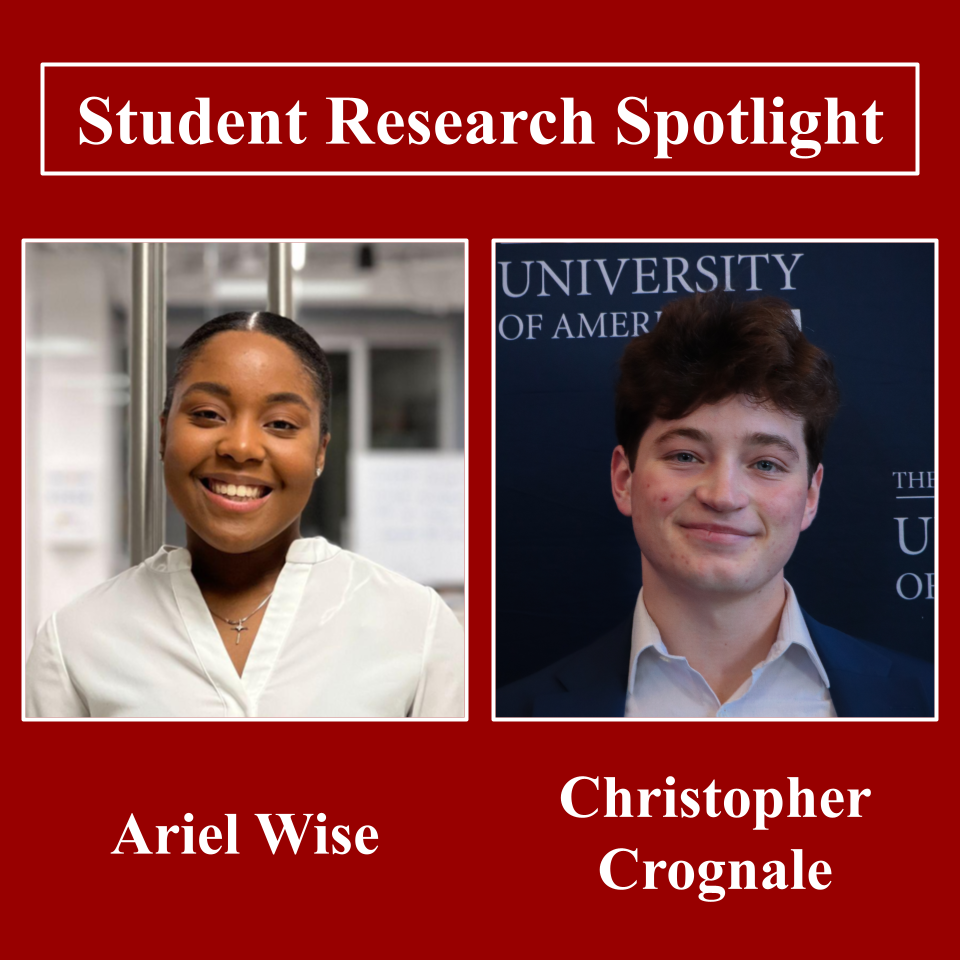
Ariel Wise and Christopher Crognale, both senior mechanical engineering students, recently won the 2025 NASA D.C. Space Grant Consortium’s STEM Student Research Poster Award Competition. They competed against students from other universities in the DMV, ultimately earning first place for their project titled, “Modeling Sound Attenuation in Tall Grass: A Sustainable Noise Control Strategy For Airports and Spaceports.”
The goal of their research project was to find a sustainable solution to support the commercialization of supersonic and hypersonic flight. Airports and spaceports are loud, causing health concerns for humans and disrupting wildlife. Increases in supersonic and hypersonic flight in the future will only further exacerbate these concerns, creating demand to develop sustainable solutions to combat acoustic externalities.
Wise and Crognales’s unique approach to solving this problem was through designing structures with tall vegetation, such as grass, as a substitute for traditional acoustic barriers which tend to be unsustainable over time. Their solution was modeled using 3D printed samples, specifically modeling blades of grass. These samples were placed into an impedance tube where the student gathered the acoustic properties of samples and used a numerical solver to predict the sound attenuation (dampening) introduced by the sample. Comparing plots for tall and short grass, and calculating the difference, their experiment found a reduction of 6 decibels incurred from the presence of the tall grass, effectively reducing the sound pressure by a factor of 2. Their experiment and research project provided data that shows tall grass and vegetation could be used as a sustainable and feasible method for combating acoustic noise pollution at airports and spaceports.
The students were advised by Diego Turo, Ph.D., an associate professor in the Department of Mechanical Engineering and expert in atmospheric and computational acoustics.
Crognale said, “I am so grateful to have received this award, and I know that this recognition will only encourage Ariel and I to work harder and to learn more from our findings.” Wise shared a similar sentiment, adding, “I would like to give special thanks to Dr. Diego Turo and all the faculty members at Catholic University who have supported us along the way.”
